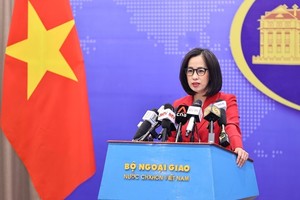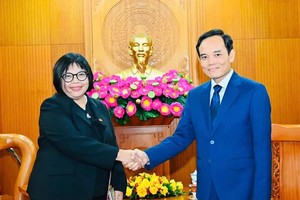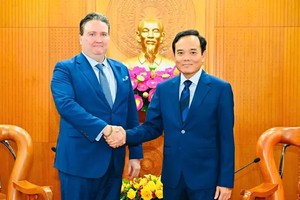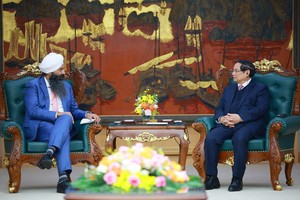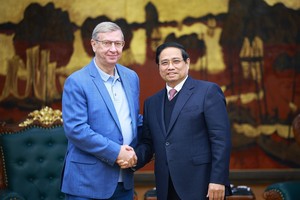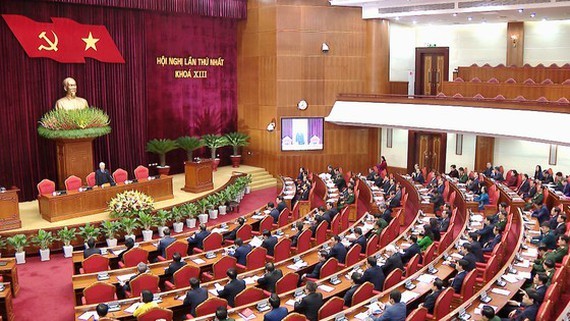
The Malaysia-based New Straits Times on February 1 spent half a page in its World column reporting the results of the congress. The article emphasised that Party General Secretary Nguyen Phu Trong's determination to fight corruption has been supported by the majority of the Vietnamese people and CPV members. According to the article, the promotion of the campaign against corruption is one of the top task of the CPV in the next tenure.
Meanwhile, the Malaymail highlighted the next tenure will focus on post-COVID-19 economic recovery and development.
The Republic of Korea’s news agency Yonhap commented that the outcomes of the congress showed that Vietnam is focusing on the stability of its State. The country will maintain its current stance and policies, open to the outside world and attract foreign investment as a driving force for economic growth.
In an interview with the Vietnam News Agency, Kyle Springer, senior analysist at the Perth USAsia Centre, Western Australia, said the outcomes of the Congress are important to Australia given that both countries are building a deeper strategic partnership and Australia wants to develop an economic partnership with Vietnam.
“Australia’s relations with Vietnam have expanded significantly since the last Party Congress in 2016. They established a formal strategic partnership in 2018 and are now in two major, multilateral trade agreements together: CPTPP and RCEP,” Springer said.
To Australia, he said, Vietnam’s economic direction after the congress will become ever more important as Australia seeks to diversify its trade and investment relations with reliable neighbours such as Vietnam.
Reuters also reported on the key politic event of Vietnam, saying the country aims to rev up its economy over the next five years, trusting on its custom-tooled mix of free trade deals, privatisation and tight COVID-19 curbs.
In an article, the news agency said with a raft of free trade deals envied by regional peers and increasing attraction of investor, the party formally approved goals to raise growth beyond an annual 6 percent in the pre-pandemic era to 6.5-7.0 percent for the 2021-2025 period.
According to Reuters, in an economic development blueprint, Vietnam would boost its growing role as a key manufacturing hub for global giants like Samsung Electronics Co and Intel Corp. At the same time, the party is targeting raising the country’s profile beyond a low-cost labour destination to a centre for science and technology.
Germany’s Süddeutsche Zeitung newspaper also noted that Vietnam has risen economically at an almost unprecedented rate over the past few decades and that effective prevention of the COVID-19 pandemic has strengthened the party’s strength.
